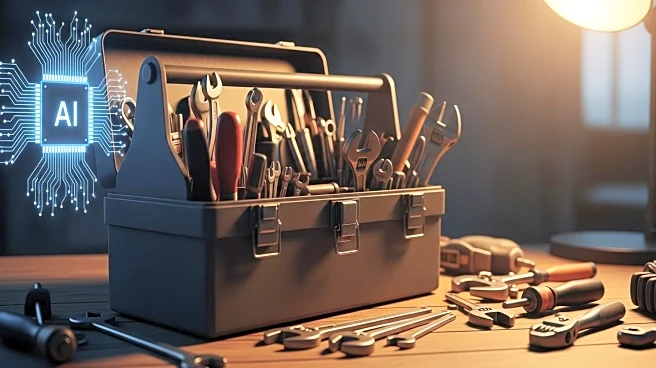What's Happening?
In the Bay Area, a workforce consultant has noted a resurgence in blue-collar jobs as artificial intelligence begins to impact the job market, particularly in white-collar sectors. As companies seek efficiency through AI, blue-collar jobs, which require hands-on skills, are becoming more resilient. At Los Medanos College, students are trained in trade skills using modern technology, emphasizing the irreplaceable human element in certain jobs. Salesforce CEO Mark Benioff has acknowledged AI's role in reducing human labor needs, particularly in engineering, where digital assistants are enhancing productivity.
Why It's Important?
The shift towards AI-driven efficiency poses a significant threat to white-collar jobs, potentially leading to job losses and a reevaluation of career paths. The resurgence of blue-collar jobs highlights the enduring value of trade skills that cannot be easily replaced by technology. This trend may influence educational policies, encouraging more students to pursue vocational training and community college programs. The development underscores the need for adaptability in the workforce and the importance of skills that complement technological advancements.
Beyond the Headlines
The rise of AI in the workforce raises ethical and societal questions about the future of employment and the balance between human and machine labor. It challenges traditional perceptions of job prestige and the value of manual work, potentially leading to cultural shifts in how society views different career paths. The situation may also prompt discussions on the role of education in preparing students for a rapidly changing job market and the importance of lifelong learning.











